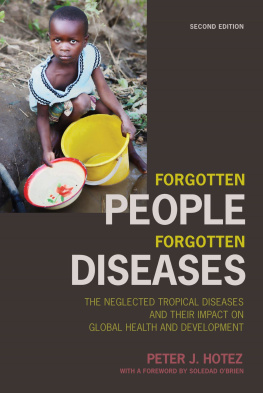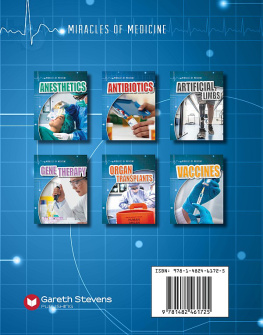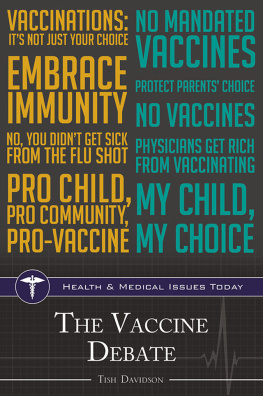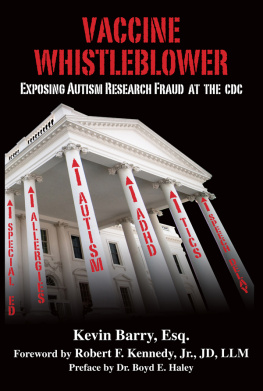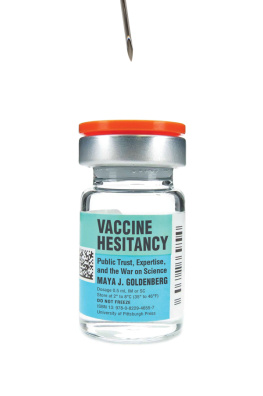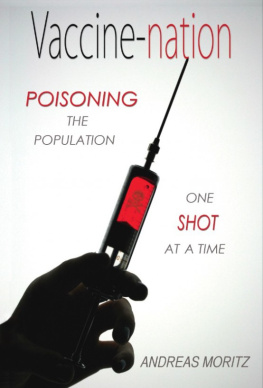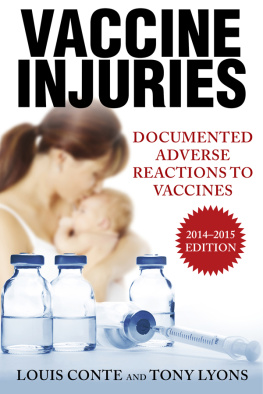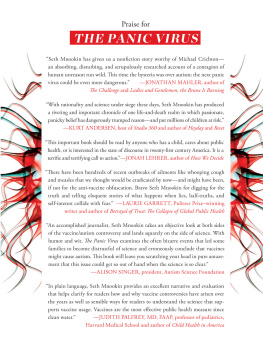Vaccines Did Not Cause Rachels Autism
Other Books by Peter J. Hotez
Forgotten People, Forgotten Diseases:
The Neglected Tropical Diseases and Their Impact on Global Health and Development
Blue Marble Health: An Innovative Plan to Fight Diseases of the Poor amid Wealth
Vaccines Did Not Cause Rachels Autism
MY JOURNEY AS A VACCINE SCIENTIST, PEDIATRICIAN, AND AUTISM DAD
Peter J. Hotez, MD, PhD
Foreword by Arthur L. Caplan
Division of Medical Ethics
NYU School of Medicine

2018 Johns Hopkins University Press
All rights reserved. Published 2018
Printed in the United States of America on acid-free paper
2 4 6 8 9 7 5 3
Johns Hopkins University Press
2715 North Charles Street
Baltimore, Maryland 21218-4363
www.press.jhu.edu
Library of Congress Cataloging-in-Publication Data
Names: Hotez, Peter J., author.
Title: Vaccines did not cause Rachels autism: My journey as a vaccine scientist, pediatrician, and autism dad / Peter J. Hotez ; Foreword by Arthur L. Caplan.
Description: Baltimore, Maryland : Johns Hopkins University Press, [2018] | Includes bibliographical references and index.
Identifiers: LCCN 2018002311 | ISBN 9781421426600 (hc. : alk. paper) | ISBN 9781421426617 (electronic) | ISBN 1421426609 (hc. : alk. paper) | ISBN 1421426617 (electronic)
Subjects: | MESH: Vaccinationtrends | Vaccines | Autism Spectrum Disorderetiology | Health Knowledge, Attitudes, Practice | Science | Anti-Vaccination Movement | Health Communication
Classification: LCC RJ240 | NLM WA 115 | DDC 614.4/7083dc23
LC record available at https://lccn.loc.gov/2018002311
A catalog record for this book is available from the British Library.
Special discounts are available for bulk purchases of this book. For more information, please contact Special Sales at 410-516-6936 or .
Johns Hopkins University Press uses environmentally friendly book materials, including recycled text paper that is composed of at least 30 percent post-consumer waste, whenever possible.
To my amazing wife of 30 years, Ann Elizabeth Hotez, the most brilliant and devoted mother of four adult children.
To Rachel, to whom I am grateful for her incredible enthusiasm in participating in this book. I thank her for our detailed discussions on autism and vaccines during weekly walks in the neighborhood.
I want to express my familys deep appreciation to the joyful inhabitants, friends, merchants, and service workers of Montrose, Houston, who daily show love and kindness to Rachel.
Finally, I want to say thank you to my public health heroes at the Houston Health Department; Harris County Public Health and Environmental Services; Texas Department of State Health Services; US Centers for Disease Control and Prevention; National Institute of Allergy and Infectious Diseases; Fogarty International Center; US National Institutes of Health; US Public Health Service; Walter Reed Army Institute of Research in the Department of Defense; United Nations Childrens Fund; World Health Organization; World International Property Organization; Coalition for Epidemic Preparedness Innovations; Gavi, the Vaccine Alliance; Carlos Slim Foundation; Kleberg Foundation; Southwest Electronic Energy Medical Research Institute; Blavatnik Charitable Foundation; European Union; Japanese Global Health Innovative Technology Fund; Brockman Medical Research Foundation; Bill & Melinda Gates Foundation; and, of course, Baylor College of Medicine and Texas Childrens Hospital. Thanks go also to the Mort and Chris Hyman family, to Bill and Melinda Kacal, and to Rebecca Marvil and Brian Smyth.
Contents
, by Arthur L. Caplan
Foreword
Why is this book needed? And why must I urge you to read it? Isnt the case for vaccination already clear?
Most of us do seem to know that vaccines work and that they are safe. Most Americans get their kids vaccinated. Pediatricians, among the most trusted doctors there are, firmly believe in them. People around the world are eager to prevent polio, cholera, rotavirus disease, cervical cancer, and measles from disabling or killing them by using vaccines. And dont we all dream of the day when HIV, malaria, herpes, and other horrible infectious diseases could meet the same fate as smallpoxgone from our planet thanks to vaccination?
Yet, despite the fact that vaccination is among the most important and effective interventions medicine has ever discovered, doubts and fears about the practice still exist. You may trust in vaccination, but you probably know someone who doesnt. Public support for vaccination is still somewhat frail in many parts of the world. Some of the best-educated people in this and other nations harbor reservations about vaccine safety. And organized political resistance to vaccination continues to rear its dangerous head in many communities.
Why is this so? The reasons for doubts and fears about vaccines are complicated.
Vaccination is, relatively speaking, new. The conquest of polio, a key triumph of vaccination, took place in the 1950s and 1960s. New things still breed distrust. And vaccine success has been so amazingwith many families in the developed world never encountering a case of tetanus, polio, measles, meningitis, or diphtheriathat any risk from vaccination, no matter how tiny, seems intolerable. Vaccines have worked so well that they lull us into a false confidence that the plagues of our grandparents and great-grandparents are simply gone forever. And who needs to vaccinate when there are other options such as essential oils, tea, neti pots, blueberry massage, energy therapy, chiropractic treatment, and vitamins to stave off the flu and other contagious diseases? These useless nostrums have plenty of advocates who dont seem to hear the viruses and bacteria laughing at them.
False claims about vaccine safety have gotten into social media where, like vampires, they live on in the darkest parts of the Internet forever. Vaccines are tied up with other issues and institutions that produce strong negative feelings, like Big Pharma and government restrictions on personal liberty. And perhaps most important, until this book, proponents of vaccines have made their case mainly with abstract statistics. Critics pay little attention to numbers. Rightly or wrongly, they invoke identifiable individuals, almost always kids, almost always their child, to justify their concerns about vaccine safety.
My friend Dr. Peter Hotez is the worlds leading authority on battling tropical diseases. Worried about Zika, Ebola, West Nile virus, typhus, malariahe is your man. He is a pediatrician who also knows one heck of a lot about vaccines. He has also thought long and hard about vaccine safety. He has tangled with the disgraced former British doctor Andrew Wakefield, who promulgated a false causal link between vaccines and autism that led to many preventable cases of measles and other diseases as parents ducked what they were told was the reason for autism. Wakefield now lives in Texas where Hotez, from his office in Houston, keeps an eye on his ongoing anti-vaccine craziness and moneymaking cures. Hotez does this while bearing the price of his vigilance in the form of threatening, hateful e-mails and tweets from Wakefields supporters, who like Japanese soldiers on remote Pacific islands who fought on long after World War II had ended with Japans defeat, keep up the vaccine-autism myth despite a mountain of evidence to the contrary.
Why might vaccine safety in general and the claim that vaccines cause autism concern Peter Hotez? Well, there is the professional, academic desire to set the factual record straight. But there is another, deeply personal reason: Peter Hotez and his wife, Ann, have an autistic daughter, Rachel. Obviously, the Hotez family wants to know why Rachel has a disability. And when anti-vaccinators impugn vaccines as the cause of autism, they all pay close attention. A man who has spent his career fighting neglected tropical diseases, sometimes with vaccines, is going to be especially and appropriately concerned when vaccines are flagged over and over again as the cause of his own daughters health issues.
Next page

